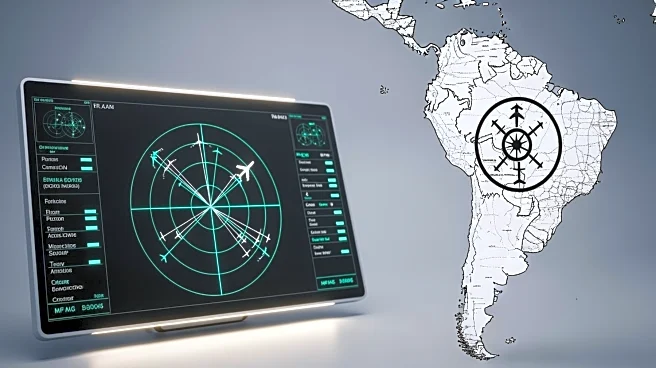What's Happening?
President Trump denied reports of a U.S. military operation involving B-1B bombers near Venezuela, calling the news 'false.' However, flight tracking data revealed that two B-1Bs from Dyess Air Force Base
were operating over international waters close to Venezuela, contradicting Trump's statement. The mission, described as a 'show of force,' aims to increase pressure on Venezuelan President Nicolás Maduro and target alleged drug traffickers. The operation is part of a broader U.S. military presence in the region, including warships, drones, and F-35s, following previous strikes on suspected narco-trafficking vessels.
Why It's Important?
The discrepancy between President Trump's denial and the flight data raises questions about transparency and communication within the administration. The military operations near Venezuela reflect escalating tensions and the U.S.'s strategic interests in combating drug trafficking. The situation may impact U.S.-Venezuela relations and influence regional stability. Critics, including GOP Sen. Rand Paul, have expressed concerns about the lack of legal justification and potential civilian casualties, highlighting the need for accountability in military actions.
What's Next?
Further military operations in the region may occur, with potential implications for diplomatic relations and regional security. The administration may face pressure to provide clearer communication and legal justifications for its actions. Stakeholders, including international observers and human rights organizations, will likely monitor developments closely.
Beyond the Headlines
The situation underscores ethical considerations in military operations, including the balance between national security and human rights. It also highlights the role of technology in verifying government statements and the importance of transparency in maintaining public trust.










